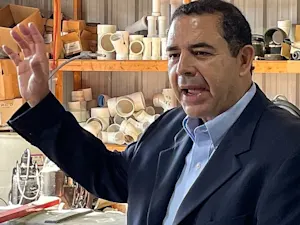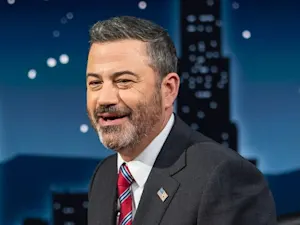
Trump's Airstrikes Ignite Fears of World War III
Official 2025 inaugural portrait of President Donald Trump. Photo by Daniel Torok. Public domain.
Explosions lit up the night sky as President Trump ordered a barrage of airstrikes on Yemen's Iran-backed Houthis, sending shockwaves through the already volatile Middle East. In a dramatic escalation, U.S. warships and fighter jets unleashed firepower on Houthi missile sites, radar, and air defenses — retaliation for the rebels' persistent attacks on international shipping in the Red Sea. But if Trump thought this show of force would bring calm, Tehran quickly made it clear: The fight is far from over.
Iran has issued warnings of consequences, and with both sides digging in, the world is left asking — how far will this go?
A Targeted Strike or the Start of Something Bigger?
President Donald Trump described the strikes as "decisive and powerful," emphasizing that the U.S. would continue military action until the Houthis ceased their attacks on commercial and military vessels, as reported by ABC News.
Trump said in a statement, "No terrorist force will stop American commercial and naval vessels from freely sailing the waterways of the world," as reported by The Associated Press.
The Houthis claimed to have launched a retaliatory strike on the USS Harry S. Truman, but U.S. officials denied it, ABC News reports. The Houthi leadership vowed to continue targeting American warships in the Red Sea and Arabian Sea, increasing concerns that the conflict could broaden.
Iran's Warning and the Possibility of Retaliation
Iran has denied direct involvement in the conflict while warning of potential consequences if its interests are threatened. While Iran has not directly engaged in this conflict, its support for the Houthis and other militant groups across the region has long been a point of tension with the U.S.
National security adviser Mike Waltz hinted that Trump's administration is prepared to hold Iran accountable for Houthi actions. "All options are on the table," Waltz said. "Iran needs to hear him loud and clear," as reported by ABC News.
Trump has signaled that the U.S. will not tolerate advancements in Tehran's nuclear program, saying, "They cannot have one thing. They cannot have a nuclear weapon and if I think that they will have a nuclear weapon ... I think that's going to be very unfortunate for them," according to Reuters. The possibility of direct military action against Iran has reportedly not been ruled out.
Civilian Casualties and Humanitarian Concerns
According to Yemeni health officials, at least 53 people were killed and nearly 100 others wounded in the U.S. strikes, with reports indicating that civilians were among the casualties, ABC News reports. The Ministry of Health in Sana'a, controlled by the Houthis, condemned the attacks, stating that "children and women" were among the dead.
The humanitarian crisis in Yemen, which has persisted for years due to ongoing conflict, risks worsening as U.S. strikes continue. International observers warn that any escalation could deepen food shortages and displace thousands more civilians.
The Regional Implications
Iran has long been accused of backing not only the Houthis but also Hezbollah in Lebanon, Hamas in Gaza, and militias in Iraq and Syria. If Iran sees U.S. actions in Yemen as a direct threat, it could activate these groups to strike American interests elsewhere in the region.
Meanwhile, the broader international community is watching closely. European allies have expressed concern that continued U.S. engagement in Yemen could push Iran into retaliatory measures that further destabilize the Middle East. Analysts note that China and Russia, both of whom have strategic partnerships with Iran, have previously called for de-escalation but have not taken a definitive stance on this specific escalation.
Where Does This Lead?
The coming days will determine whether this latest U.S. action is an isolated military maneuver or the beginning of a prolonged standoff. The Houthis show no signs of backing down, and Iran's rhetoric suggests that Tehran is prepared to escalate if provoked. Trump's administration, on the other hand, has made it clear that it will not tolerate continued attacks on U.S. interests.
With tensions mounting, is this brinkmanship, or are we on the path to a much larger conflict? If history is any indicator, the answer may depend on who makes the next move.
References: Iranian general raises prospect of response amid US strikes on Houthis | Trump orders strikes on Iran-backed Houthi rebels in Yemen and issues new warning | Confrontation With Iran | Trump says he would love to make a deal with Iran | Iran denies aiding Yemen's Houthi rebels after US strikes and threat from Trump























